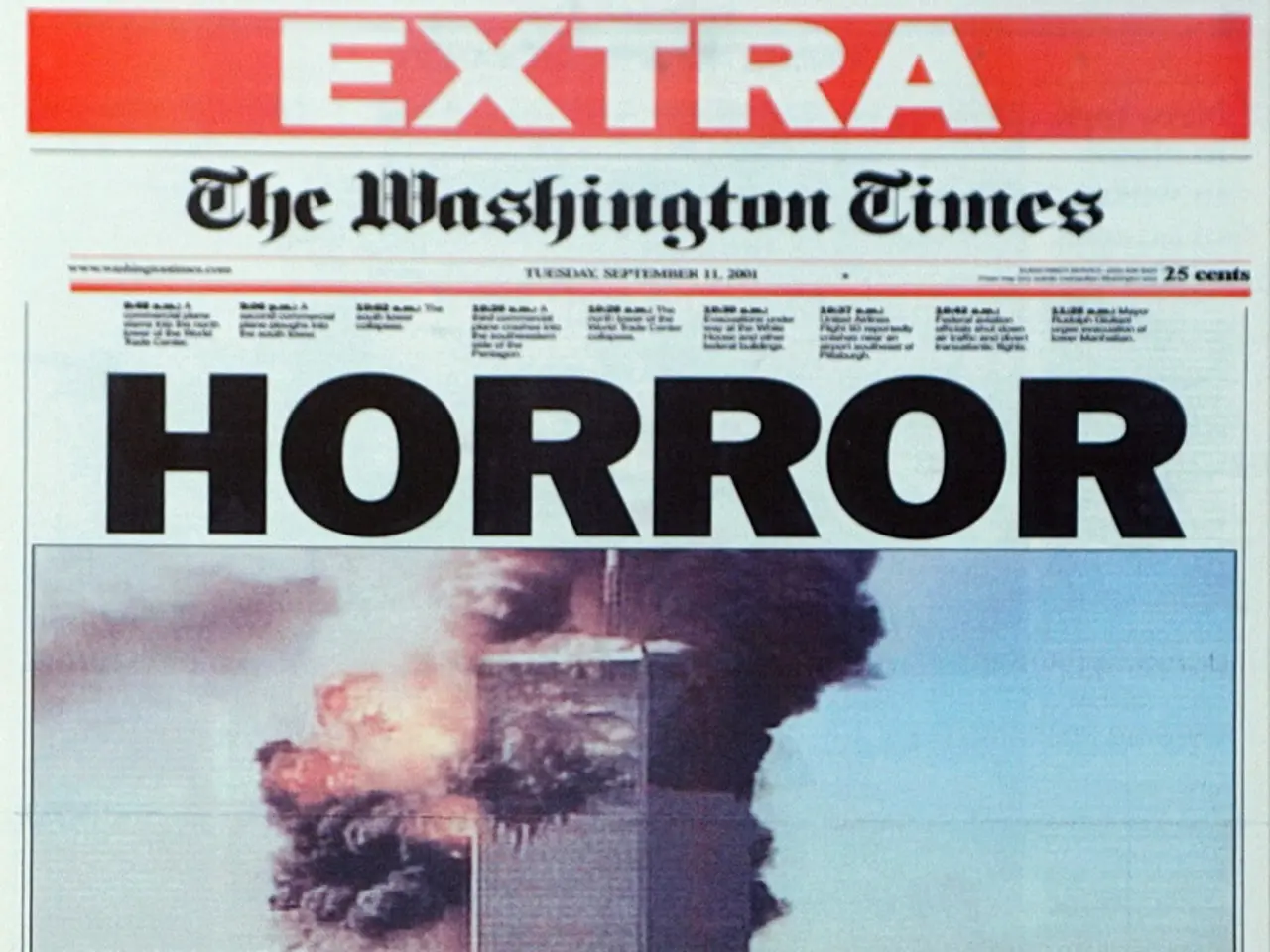DAX Shutdown: Slight Vulnerability - Rheinmetall, Renk, Hensoldt, and Commerzbank Under Scrutiny
Midweek Market Report: A Rollercoaster Ride in Germany's Stock Market
Last week saw a partial deceleration in the upward trend of the German stock market, particularly the DAX and MDax indices. The reasons behind this slight slump were multifaceted, with geopolitical tensions easing in the Middle East and positive signals from US markets offering little momentum.
Let's dissect some notable performances:
The DAX and MDax Indices - The DAX closed at 23,498.33 points, marking a 0.61% drop, while the MDax ended 0.11% lower at 29,925.98. The gradual fall could be attributed to the financial markets pricing in the easing of Middle East tensions rapidly and the Federal Reserve Chair, Jerome Powell, signaling a steady interest rate policy. However, if inflation data proves weaker than expected or the labor market weakens, the currency protectors might decide to lower interest rates more promptly, according to Landesbank Baden-Württemberg (LBBW).
Defense Stocks - The increased geopolitical tension, particularly between Russia and Ukraine, and the insistence of US President Donald Trump, led to NATO committing to increasing defense spending to at least 5% of GDP annually by 2035. This commitment has positively impacted defense stocks like Rheinmetall, Renk, and Hensoldt, which saw share price gains of between 3.1% and 5.7%.
Logistics Sector - DHL shares took a hit, falling 1.5%. The global demand uncertainty and a negative outlook due to FedEx's international package delivery performance were the primary culprits, as per JPMorgan experts.
Commerzbank and Befesa - Profit-taking from Commerzbank shares led to a 5.7% drop, making it the weakest performer on the DAX. Previously, it had reached its highest level in over 14 years. An upgrade by US bank Morgan Stanley to "Overweight" reversed a multi-day decline for recycling specialist Befesa, causing its shares to rise by 11.8%.
SMA Solar and Formycon - SMA Solar shares were the SDax's top performers, gaining 12.4%. This marked the continuation of a bottoming process seen over the past few months. Over 1 in 20 SMA Solar shares are currently being sold short. Formycon rose 6.2%, as it announced a marketing partner for its eye medication FYB203 in North America, US company Valorum Biologics. FYB203 is a biosimilar of Bayer’s Eylea medication, which is sold in the US by partner Regeneron.
In an overall analysis, the geopolitical tensions create a complex but generally positive environment for the German stock market. The DAX index, despite occasional fluctuations, has demonstrated resilience and reached record highs, driven by strategic trade policy shifts, advances in technology, and Germany's export-oriented economy. Furthermore, defense stocks like Rheinmetall likely benefit from increased geopolitical risks, making them appealing to investors seeking exposure to sectors that gain from heightened global security concerns. However, this environment creates volatility due to the uncertainties surrounding global conflicts.
References: [1], [2], [3], [4]
The financial sector within the German stock market, as represented by the DAX and MDax indices, experienced a decline last week, possibly due to the rapid pricing-in of easing Middle East tensions and a steady interest rate policy suggested by the Federal Reserve Chair.
In the industry sector, defense stocks like Rheinmetall, Renk, and Hensoldt saw gains due to increased geopolitical tensions and NATO's commitment to increased defense spending.






